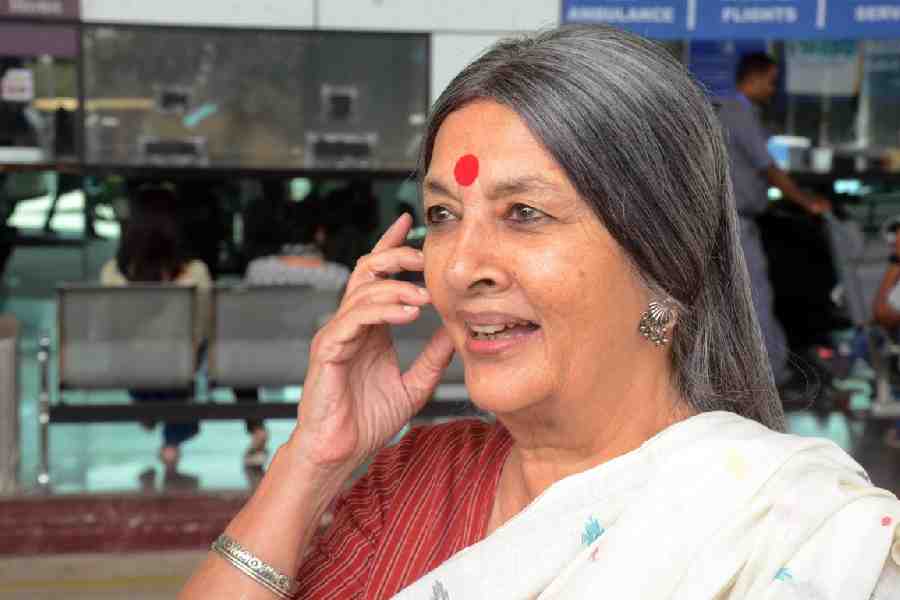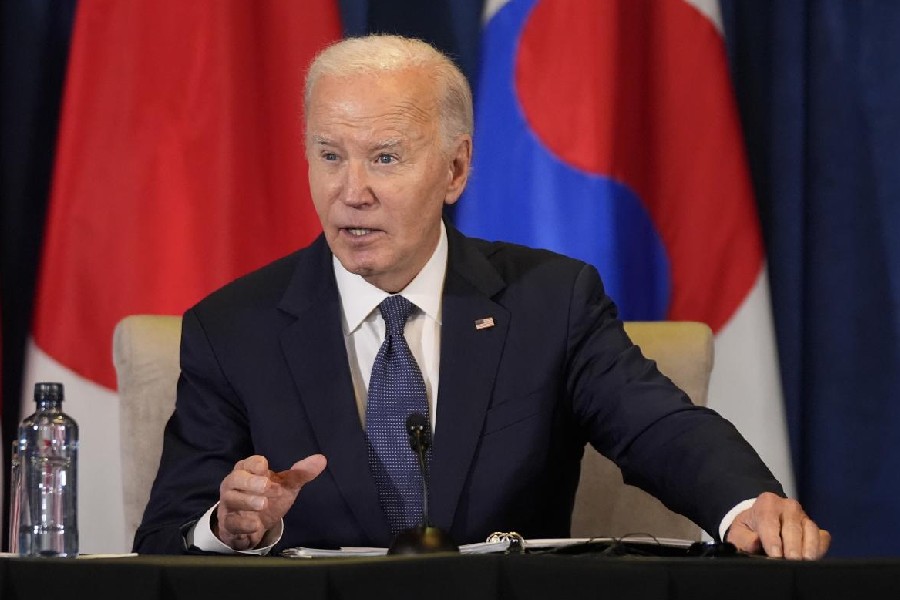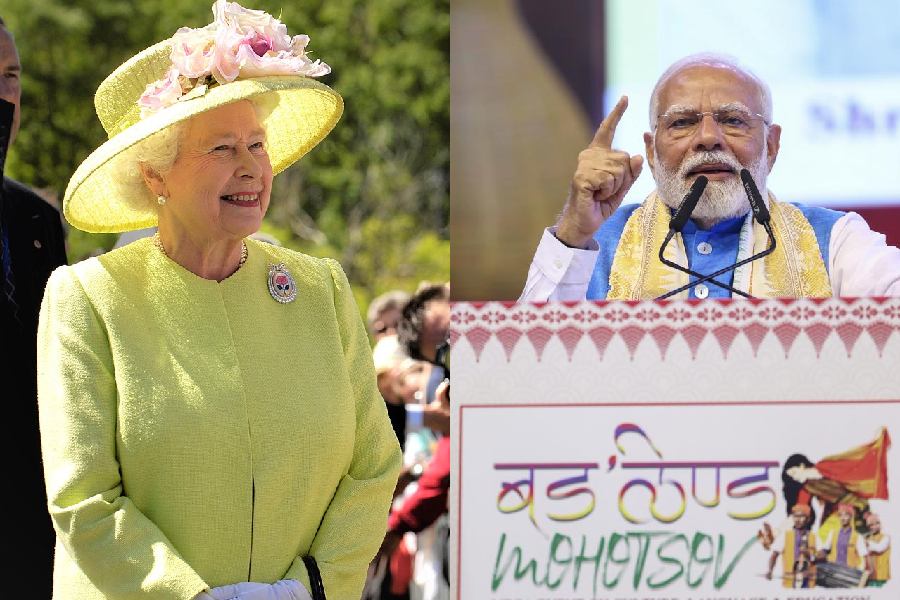Familiar plot
Damian Dibben’s novel, The Colour Storm, set in Venice in 1510 among painters such as Leonardo da Vinci and Michelangelo competing fiercely with each other to acquire the perfect pigments for their great works of art, has had rave reviews — “Addictive” (Observer), “Glorious” (The Times), and “Compelling” (Sunday Times). This unusual novel has certainly got me hooked. When I went to the book’s launch in West London, the author was surrounded by all manner of beautiful objects he had made himself for he is also an artist. There was also a poster with a quote from Chapter XXII: “… She is all in black, black as coal, coat, gloves, collar. Even the fur about her cuffs is the colour of panther. It’s as if night, herself, had arrived…”
Dibben told me something quite intriguing: “My novel was inspired by Anish Kapoor.” I realised what it was. Back in 2016, the Bombay-born Sir Anish Kapoor, who is probably Britain’s richest artist, had enraged the artistic fraternity by establishing a monopoly over the then blackest paint in the world, Vantablack. It meant that no other artist could use the colour. It is so black that it “absorbs a maximum of 99.965 per cent of radiation in the visible spectrum”.
An English artist, Christian Furr, protested: “We should be able to use it. It isn’t right that it belongs to one man.” Shanti Panchal, an Indian-origin artist in London who uses layer upon layer of water colour to create the darkest hues, also objected: “I have not known of anything so absurd. In the creative world nobody should have a monopoly.” Dibben confirmed it was this controversy sparked by Kapoor that made him write The Colour Storm.
Past associations
The whole institution of arranged marriage gets a sympathetic treatment in What’s Love Got to Do with It? which had its premiere in London last week. Jemima Goldsmith’s marriage to Imran Khan in 1995 — she was 21, he was 42 — wasn’t arranged but she has used her experience of life in Pakistan to begin a new life as a scriptwriter. Despite all the ups and downs in their marriage, she still retains a soft spot for Imran. One thing Jemima did say is that when she travels to America with her sons, Sulaiman and Kasim, they get taken off and questioned because of their Muslim names — “that doesn’t happen to me”. I chatted briefly to Shekhar Kapur, who has directed the film, but we mostly remembered Bandit Queen, which, I think, will be his legacy. We fondly remembered Mala Sen, who adapted her biography of Phoolan Devi for the movie. Shekhar told me he is sure he knows who had Phoolan shot dead in 2001.
Different approach
Twice in a week, I have been to the National Theatre — the first time to see a modern adaptation of Euripides’s Greek play, Phaedra, and on the second time for Standing at the Sky’s Edge, a musical about community life on the sprawling Park Hill Estate in Sheffield. Since Euripides wrote his play in 428 BC, there have been many adaptations and stage dramatisations, including one on the consequences of forbidden love between Rani Fida and Harman in Neelam Mansingh’s 1990 version. What I have learnt from Indhu Rubasingham is that the National is bringing back The Father and the Assassin, which she directed last year. Written by the Chennai-based Anupama Chandrasekhar, it looked at MK Gandhi’s assassination through the eyes of Nathuram Godse, who had initially been a supporter of the Mahatma.
I remember it began with Godse seeking to win over the audience: “Do I look evil? I’m not, no matter what you’ve heard. I am a genuine, concerned citizen of the world who once wanted nothing more than to be a free man... I guarantee, once you know my story, once you truly understand me, I know you’ll celebrate me. Maybe even build statues in my honour.”
Love and hate
It was entertaining enough that the Indian High Commissioner, Vikram Doraiswami, addressed the PG Wodehouse Society, on why Bertie Wooster and Jeeves have such appeal in India. But I was also able to pick up “a series of occasional papers” written by the society’s vice chairman, Paul Kent on sport, food and love.
On Valentine’s Day I read Kent on Bertie’s take on love: “Finally shy after being bitten several times, Bertie eventually comes to regard ‘modern girls’ as ‘all lipstick and cool, hard, sardonic eyes’ (Right Ho, Jeeves!), and by 1938’s The Code of the Woosters, he’s ranting that: ‘The more I see of women, the more I think there ought to be a law. Something has got to be done about this sex, or the whole fabric of Society will collapse…”
Footnote
Rishi Sunak has featured on another Private Eye cover, an occupational hazard for a prime minister. The current cover shows him seated next to Nadhim Zahawi, a former chancellor whom Sunak had to sack as the Conservative party chairman. The cover recalled that as chancellor of the exchequer, Sunak also got into trouble because of the non-domiciled tax status of his wife, Akshata Murty. “We can’t have ex-chancellors with dodgy family finances,” Sunak is saying, to which Zahawi responds, “I accept your resignation.”











